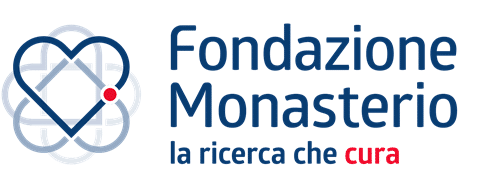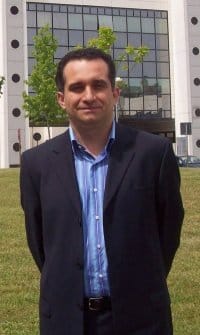Profile & expertise
FTGM is a public research organization founded by Tuscany Region and National Research Council. FTGM is also a healthcare provider, within public health regional service, highly specialized in cardiac-related disease diagnosis and treatment, including cardiac surgery, for adult and paediatric patients. In Italy represents the first centre for volumes of activity in hemodynamic procedures (e.g. PTCA), and an excellence centre for patients affected by chronic heart failure.
FTGM facilities include a cutting-edge clinical imaging department, basic sciences, bioengineering, computer science laboratories and a large unit of experimental medicine. Moreover there are laboratories for molecular biology, genetics and artificial organs.
FTGM research covers a full spectrum from molecular biology to experimental and clinical medicine, clinical and environmental epidemiology, and health service research, and is planned around four thematic areas: clinical, biological, technological, and epidemiological. Spanning in its aims from molecular mechanisms to the organs and the body as a whole, the biomedical staff interacts with non-medical scientists in the fields of physics, mathematics, electronics, computer science, chemistry and material science.
With many established collaboration with industries, technological research FTGM has been successful in the areas of artificial organs, bioengineering, medical electronics, signal and image processing, and in implementing an advanced ICT system integrating all clinical activities of FTGM.
FTGM RESEARCH
Research covers a full spectrum from molecular biology to experimental and clinical medicine, clinical and environmental epidemiology, and health service research, and is planned around four thematic areas: clinical, biological, technological, and epidemiological. Spanning in its aims from molecular mechanisms to the organs and the body as a whole, the biomedical staff interacts with non-medical scientists in the fields of physics, mathematics, electronics, computer science, chemistry and material science.
With an established record of collaboration with industry, technological research in FTGM has been successful in the areas of artificial organs, bioengineering, medical informatics, signal and image processing, and in implementing an advanced ICT system integrating every clinical activity.
Since 1999 is exploiting a complex EHR system, internally developed and evolved over time up the current fourth generation of ICT system. The EHR is used in FTGM and 13 other Hospitals in Tuscany Region. FTGM has also outstanding experience in multimodal imaging and data management (e.g. FTGM is running the Regional registries for rare diseases and for congenital defects), associated to biomarker assays and analysis.
Enabling factor for clinical research and data driven research of FTGM, ICT expertise in FTGM is recognized in many research grants obtained in regional, national and European level, and collaboration with WHO in projects centered on patient safety.
Role in the Project
FTGM in the KINAITICS project is involved in the definition of attack and defense scenarios applied to the healthcare processes, considering the strong presence of humans-in-the-loop as critical factor to expose weak spots in the IT systems used for daily patients care.
FTGM is also responsible of WP6, Demonstrators and replicability, that encompasses the experimental usage of the developed tools and platform in the different scenario and involving partners that expresses the knowledge and capability to reproduce real activities of the 4 domains targeted in KINAITICS (healthcare, finance, simulation, CRBN security).
In respect of project’s objectives FTGM expertise is expressed in many different areas:
MEDICAL INFORMATICS
- Integration of Clinical, Technological and administrative hospital processes
- Integration/representation of diagnostic parameters
- Electronic Health Record systems for Physicians and Nurses, for in- and out-patient
- Research on Ergonomics and Safety for eHealth Systems
- Research on Cyber Risk and e-Iatrogenic effects of eHealth systems
ADVANCED MEDICAL IMAGING
- Advanced Shared Hospital Information System for image exchange and transmission

MAIN CONTACT
First name: Stefano
Last name: Dalmiani
Email: dalmiani@ftgm.it
Phone number: +39 050 315 2427
Organisation website: https://www.monasterio.it/
Key people on the project
Stefano Dalmiani
Head of ICT Department – Head of INFOTEL UNIT Translational Bio-Informatics and eHealth Systems – of “Gabriele Monasterio” Foundation (Tuscany Region and National Research Council) has been working for more than 20 years in the field of translational research on electronic Health systems for the management and processing of clinical and diagnostic data, and in development of interoperability standards between eHealth systems.
Responsible and coordinator for many assigned grants, at regional, national and EU level, for ICT-based projects, focused on innovative healthcare process modelling and clinical/epidemiological data processing.
Former member of HL7 Italy direction board, former chair of HL7 V3 WG, former chair of HL7 OID Italian Registry, member of ProREC Italy board, member of APIHM board, he is author of over 80 international, national publications and books on health information systems and electronic medical records.

Paolo Marcheschi
Head of RIS/PACS and Digital Documents management systems of FTGM, since 2001 he develops research activity and consultation in the field of the elaboration of the medical images, he coordinates inherent projects for the introduction and consolidation of DICOM and HL7 standards in the departments of diagnostic and medical imaging.
In the period 2003-2008 he was HL7 Italy CTS Chair, he coordinated the HL7 v2.x and HL7 CDA working groups, formalizing CDA templates, complying with the HL7 V3 standard, harmonized according to the Italian needs.
From 2005 to 2008 he has been Responsible for National Research Council (CNR) Main activity: “Development of an HL7 pilot project” inside the main line: “Epidemiology and research on sanitary services.”
He coordinates inherent projects for the introduction, consolidation and innovation of the DICOM and HL7 standards in the field of diagnostic medical imaging.

